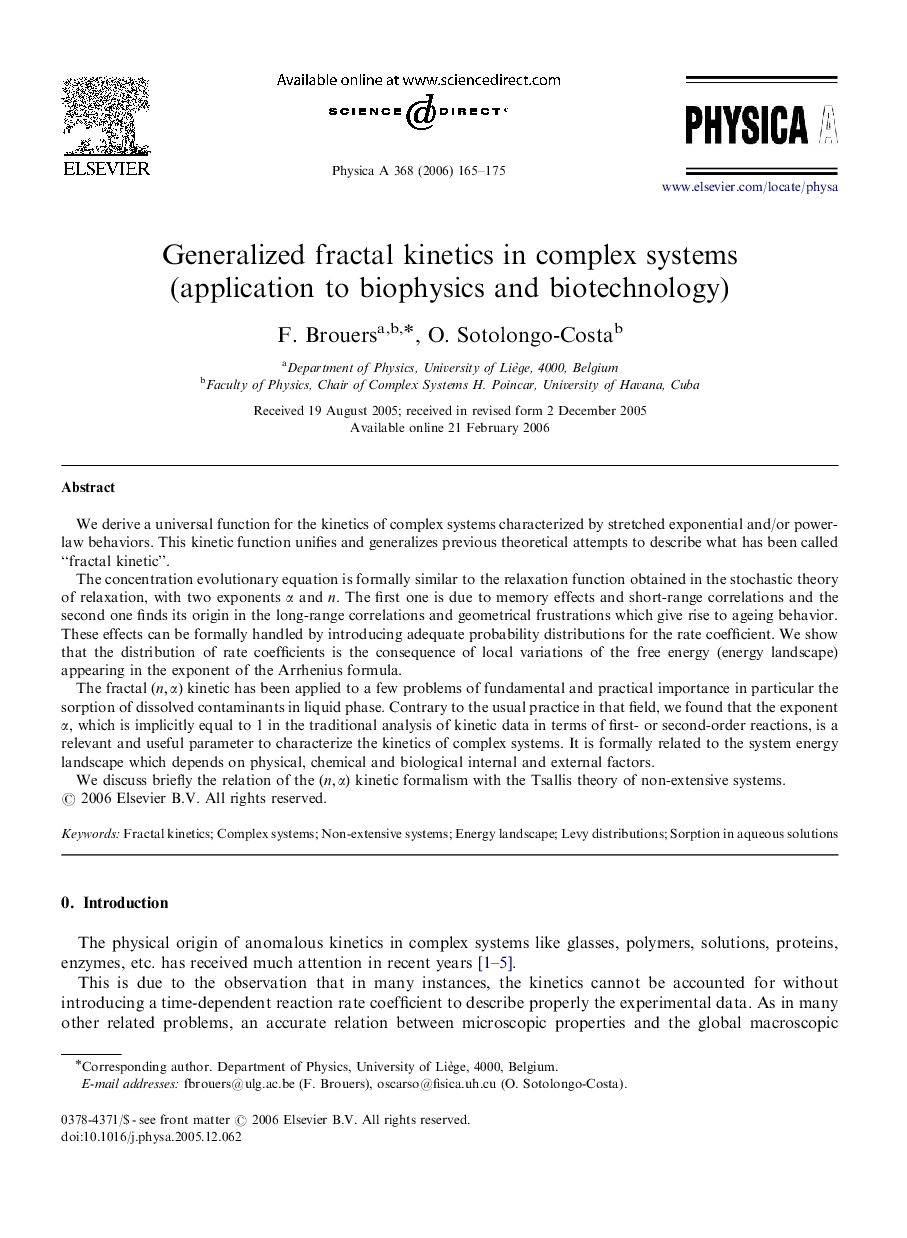| Article ID | Journal | Published Year | Pages | File Type |
|---|---|---|---|---|
| 977260 | Physica A: Statistical Mechanics and its Applications | 2006 | 11 Pages |
We derive a universal function for the kinetics of complex systems characterized by stretched exponential and/or power-law behaviors. This kinetic function unifies and generalizes previous theoretical attempts to describe what has been called “fractal kinetic”.The concentration evolutionary equation is formally similar to the relaxation function obtained in the stochastic theory of relaxation, with two exponents αα and n. The first one is due to memory effects and short-range correlations and the second one finds its origin in the long-range correlations and geometrical frustrations which give rise to ageing behavior. These effects can be formally handled by introducing adequate probability distributions for the rate coefficient. We show that the distribution of rate coefficients is the consequence of local variations of the free energy (energy landscape) appearing in the exponent of the Arrhenius formula.The fractal (n,α)(n,α) kinetic has been applied to a few problems of fundamental and practical importance in particular the sorption of dissolved contaminants in liquid phase. Contrary to the usual practice in that field, we found that the exponent αα, which is implicitly equal to 1 in the traditional analysis of kinetic data in terms of first- or second-order reactions, is a relevant and useful parameter to characterize the kinetics of complex systems. It is formally related to the system energy landscape which depends on physical, chemical and biological internal and external factors.We discuss briefly the relation of the (n,α)(n,α) kinetic formalism with the Tsallis theory of non-extensive systems.
